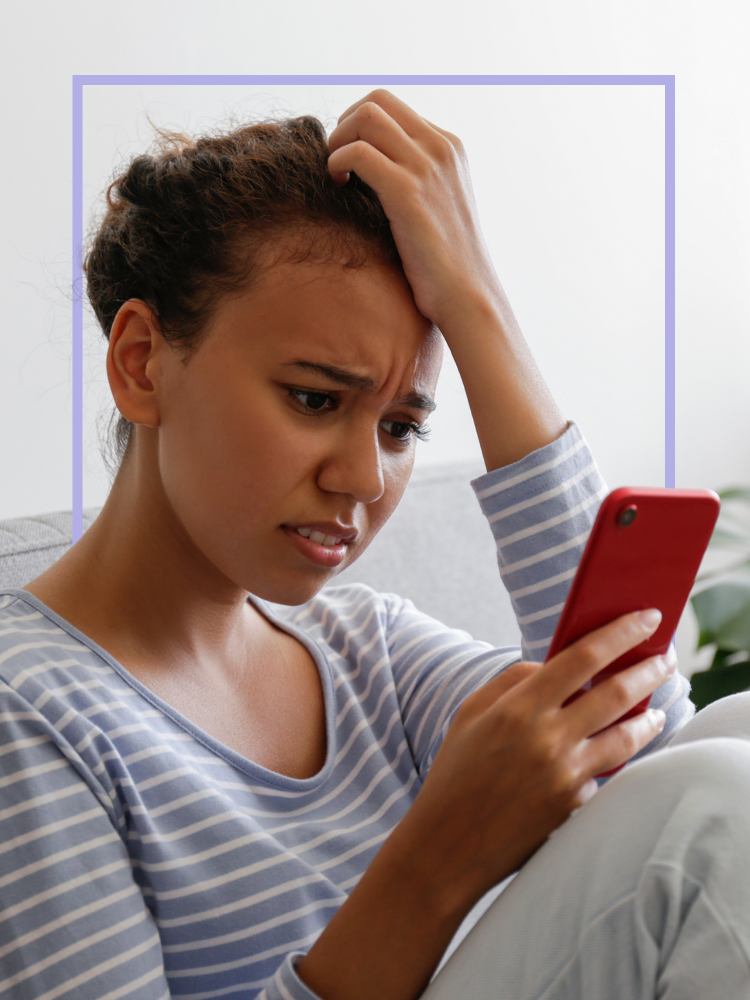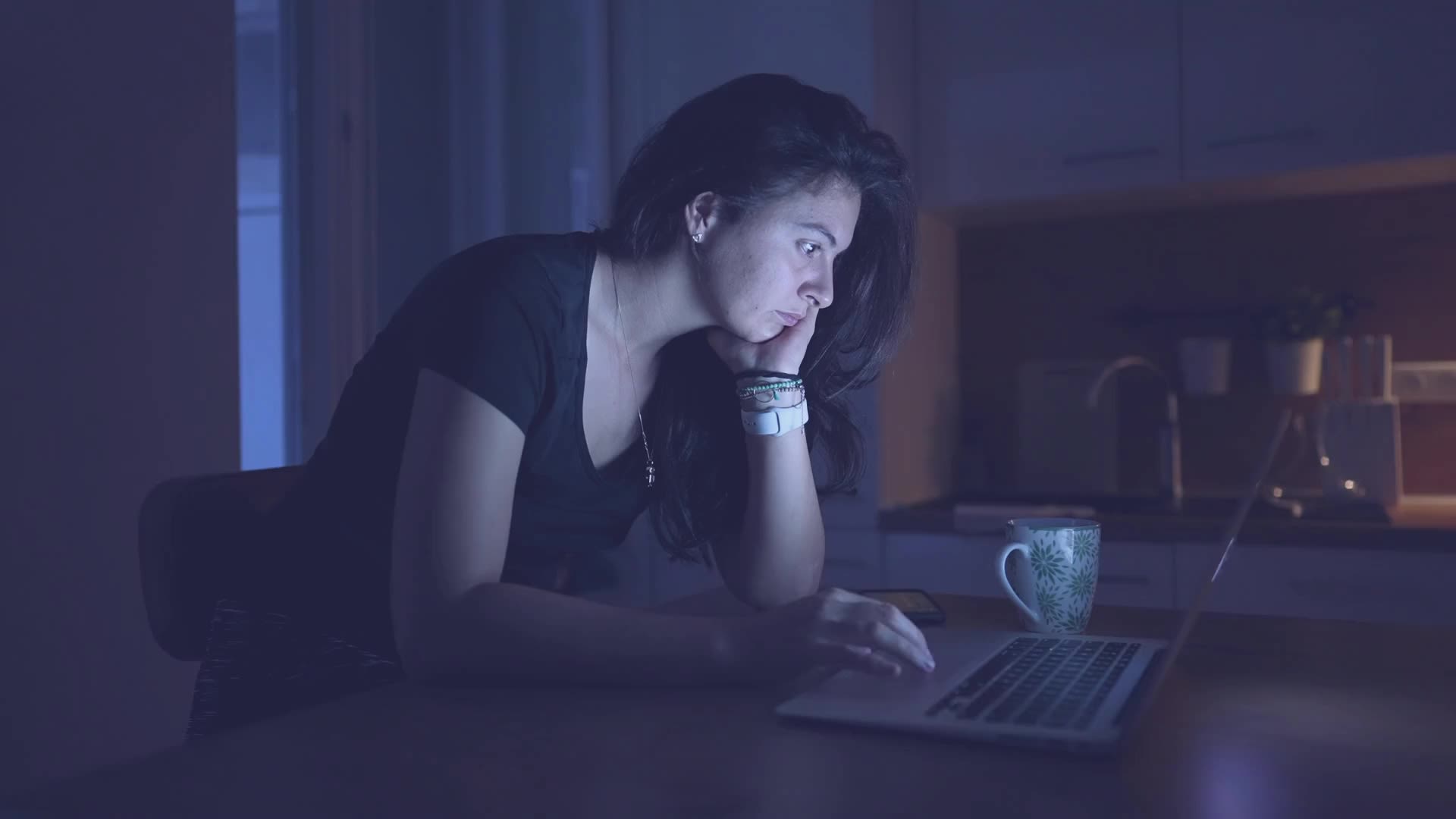Social media, the digital world and mental health

We are spending more and more time online, using social media and gaming platforms, accessing news and information and seeking out vital health information.
Oxford experts are examining the impacts of our online lives, and uncovering how digital technologies can negatively impact, but also benefit, our mental health.
They are helping to shape government policy to protect young people online, and developing tools recommended by the NHS to aid equitable online access to mental health services.
Content warning:
Please be aware that this page refers to depression, anxiety and topics such as suicide and self-harm.
Social media and life online


The impact of social media on wellbeing
Oxford researchers are looking into how social media and other online behaviour impacts our wellbeing. More research is needed, but our experts have made surprising findings on the links between social media, gaming use and wellbeing that are not what some might expect.
Researchers from the Oxford Internet Institute (OII) are investigating how the Internet, social media platforms and video games influence the mental health and psychosocial functioning of young people.
Psychosocial:
The interrelation of social factors and individual thought and behaviour
The Programme on Adolescent Well-Being in the Digital Age, led by the OII’s Professor Andrew Przybylski and funded by the Huo Family Foundation, runs until 2025 and aims to investigate the widely held assumptions that the overall mental health of young people is undergoing a period of decline driven by digital technologies.
A study undertaken by Professor Przybylski, with Cambridge’s Dr Amy Orben, examined data from over 430,000 adolescents in the UK and US to investigate how associations between adolescents’ technology use and mental health have changed over the past 30 years.
The study found little evidence for increases in associations between adolescents’ technology engagement and mental health.
‘As more data accumulates on adolescents’ use of emerging technologies, our knowledge of them and their effects on mental health will become more precise… We need more transparent and credible collaborations between scientists and technology companies to unlock the answers.’
Over the eight associations studied, only three indicated some change over time. Social media use and television viewing had become less strongly associated with depression; on the other hand, social media’s association with emotional problems had increased. The observed changes over time were, however, small, and behavioural problems or suicidal ideations were not detected.
In another study conducted with researchers from the University of Vienna and Nesta, researchers from the Programme on Adolescent Well-Being in the Digital Age found that consuming traditional forms of media including books, music and television has little effect on short-term adult wellbeing.
The team studied the media consumption habits and wellbeing levels of 2,159 UK adults between April and May 2020 to challenge the assumption that engaging with traditional types of media improves wellbeing, while using newer types of media, such as social media, worsens wellbeing.
‘Our findings show that the overall impact of traditional media on short-term wellbeing is minimal. It’s really important that we try to shift the debate away from such an elitist view and look at other factors that influence peoples’ general wellbeing.’
An international team of scientists, including Professor Przybylski, found that girls and boys might be more vulnerable to the negative effects of social media use at different times during their adolescence.
In girls, social media use between the ages of 11 and 13 years was associated with a decrease in life satisfaction one year later, whereas in boys this occurred between the ages of 14 and 15 years.
The differences suggest that sensitivity to social media use might be linked to developmental changes, possibly changes in the structure of the brain, or to puberty, which occurs later in boys than in girls, although this requires further research.
‘To pinpoint which individuals might be influenced by social media, more research is needed that combines objective behavioural data with biological and cognitive measurements of development.’
Professor Przybylski joined a panel convened by the Family Online Safety Institute to discuss how the global pandemic and rise of online platforms interact to shape the mental health of young people.
Professor Przybylski speaks with researchers from UC Irvine and MIT, discussing technology effects on young people, role of technology industry and online platforms in sharing data with independent researchers, and the future of social data science investigating global mental health.

Researchers at Oxford’s Saïd Business School found that time spent on social media can have a positive effect on psychological wellbeing.
Professor Andrew Stephen and Dr Cammy Crolic found the positive effects were only evident when the platforms were used to facilitate genuine social interactions, such as engaging with close friends and family.
The results are the preliminary findings of a multi-year research project that involved nearly 2,000 adult internet users, mainly in the US and UK. The study considered the impact on overall psychological wellbeing, which is a key factor in determining a person’s general level of happiness, rather than focusing on a narrow component of wellbeing such as self-esteem.
‘We found that a truly social use of social media has a detectable, albeit small, positive effect on a person’s psychological wellbeing, whereas merely following influencers, brands or other non-social entities had no effect.’

Gaming and mental health
Do video games impact wellbeing?
Research from the Oxford Internet Institute conducted during the UK’s national COVID-19 lockdowns found that time spent playing games is positively associated with wellbeing.
The first-of-its-kind study used industry data on actual play time for popular video games Plants vs Zombies: Battle for Neighborville and Animal Crossing: New Horizons. The findings suggest that experiences of competence and social connection with others through play may contribute to people’s wellbeing. Indeed, those who derived enjoyment from playing were more likely to report experiencing positive wellbeing.
‘For the first time we’ve been able to investigate the relation between actual game play behaviour and subjective wellbeing, enabling us to deliver a template for crafting high-quality evidence to support health policymakers.’
These experiences during play may be even more important than the actual amount of time a player invests in games and could play a major role in the wellbeing of players.
In an additional study of 39,000 gamers, researchers from the Oxford Internet Institute found time spent playing video games is unlikely to impact wellbeing.
‘Our study finds little to no evidence of connections between gameplay and wellbeing, but we know we need much more player data from many more platforms to develop the kind of deeper understanding required to inform policy and shape advice to parents and medical professionals.’
The team worked with seven leading video game companies and asked players aged 18+ to donate their play data for independent analysis and found little to no evidence for a causal connection between gameplay and wellbeing.
Professor Przybylski and his team are collaborating with game developer FuturLab, makers of the game PowerWash Simulator, to study the effects of playing video games on the mental health of players.
FuturLab discuss their partnership with the University of Oxford and how an Oxford research study was implemented into their successful game, PowerWash Simulator.
The project is a one-of-a-kind collaboration between independent researchers and partners from the gaming sector, where players are invited to sign up for a research edition of the game and report their wellbeing to the team at the Oxford Internet Institute.
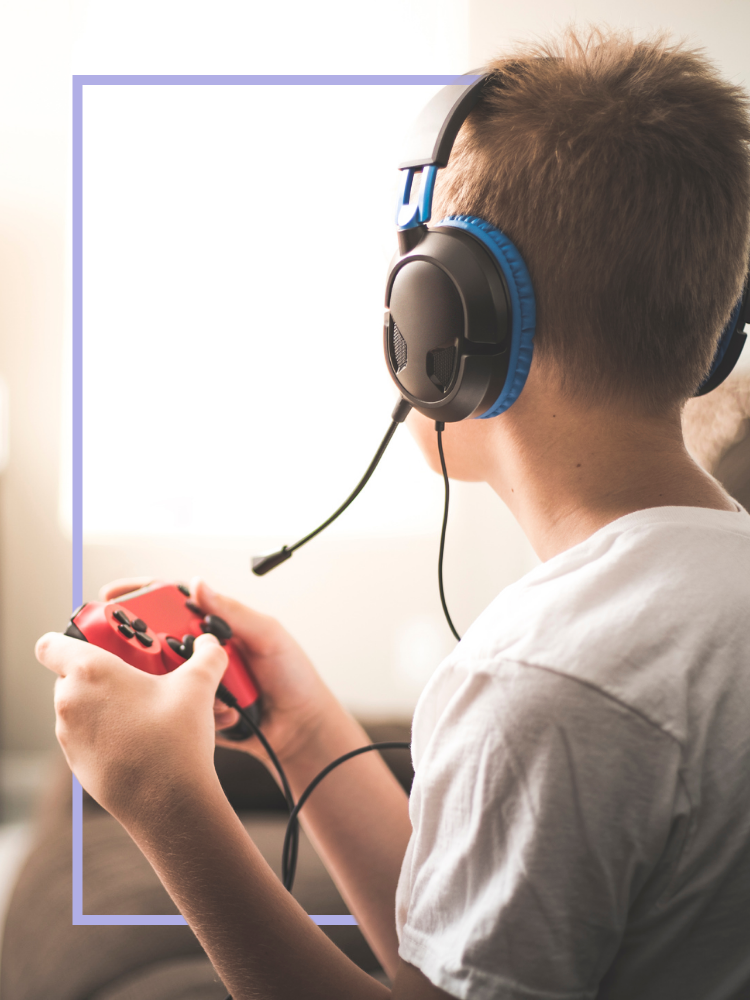

Professor Andrew Przybylski discusses the results of his research that finds little causal relationship between video gaming and wellbeing with BBC News.
Professor Andrew Przybylski discusses his research with BBC World News.
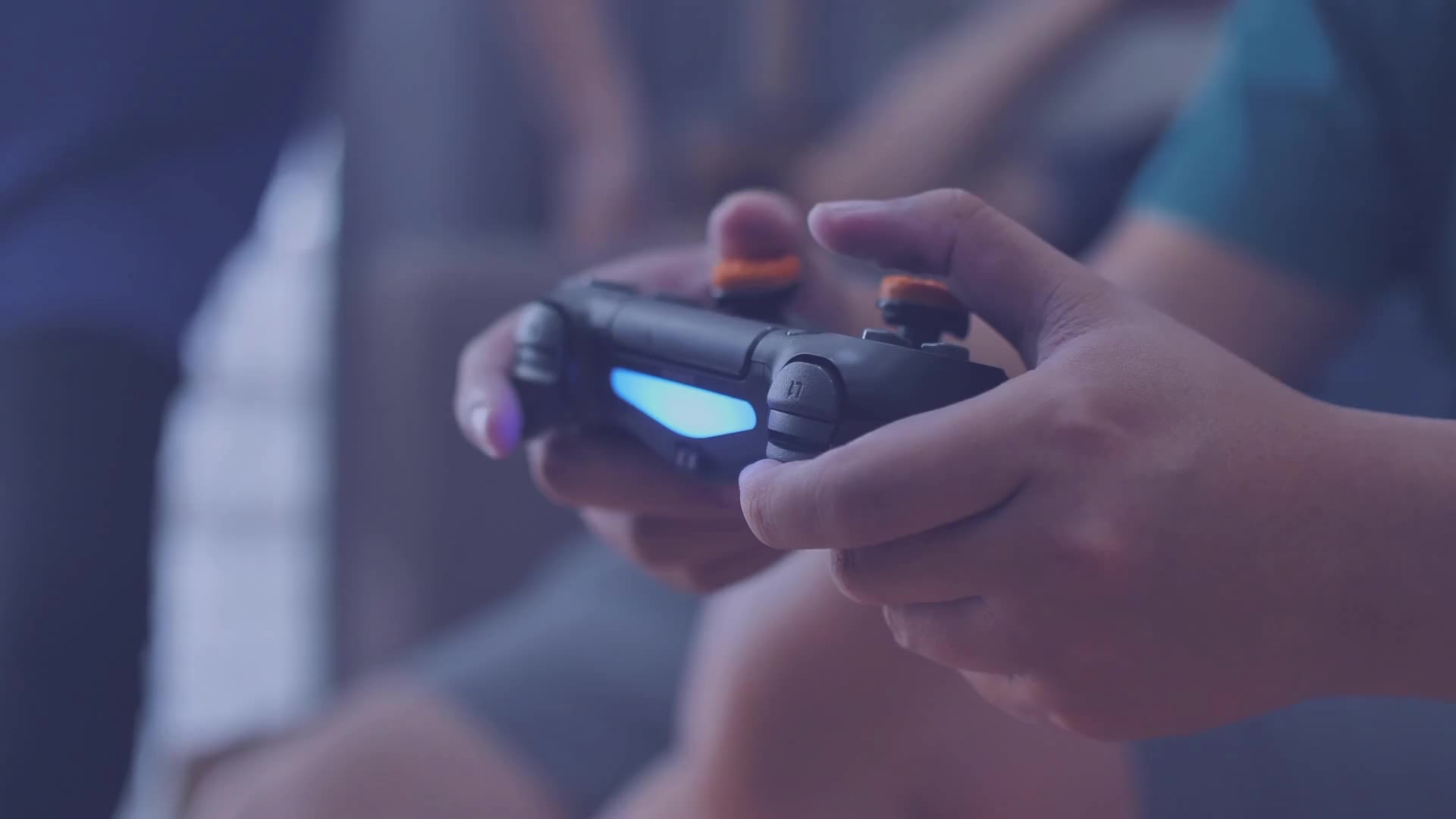
Internet use and self-harm
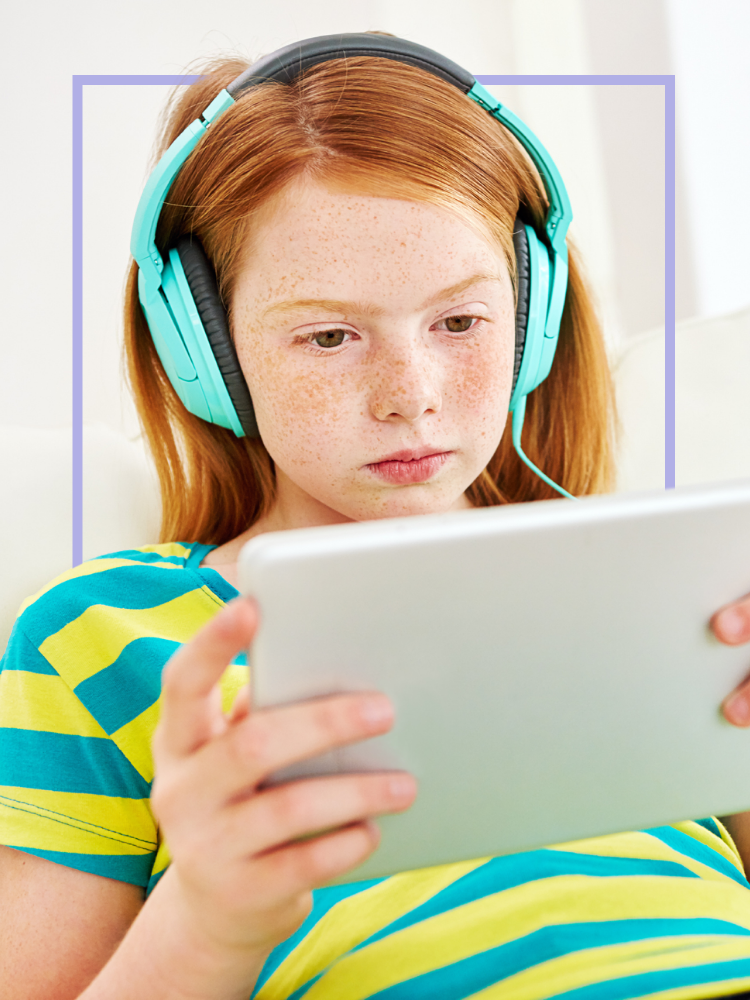

Links between online content and self-harm
Researchers from the Department of Psychiatry are examining connections between online activity and self-harm.
Experts, including Professor Keith Hawton, Director of the Centre for Suicide Research, took part in a study which systematically reviewed evidence of the internet’s influence on self-harm and suicidal behaviour in young people.
The study found significant potential for harm from online behaviour, particularly noting an association with internet addiction, high levels of internet use, and websites with self-harm or suicide content.
The researchers also noted the potential to exploit the benefits of internet use such as crisis support, reduction of social isolation, delivery of therapy and outreach, and suggested the focus should now be on how specific mediums including social media and image sharing might be used in therapy and recovery.
Clinical researchers at Oxford also reviewed international research evidence regarding the impact of viewing images of self-harm on the internet and in social media.
‘This review of studies from across the world, mostly on young people, provides strong support for concerns about the potential impact of viewing images of self-harm.’
Researchers included Professor Hawton and clinicians from the Oxford Health NHS Foundation Trust and Oxford Institute of Clinical Psychology Training and Research.
In all fifteen research studies reviewed there was evidence that looking at images of self-harm had harmful effects. However, nine of the studies also indicated some ‘protective’ effects for some young people, including reduction in urges to self-harm for some, social connection with other people, and providing and receiving support.
‘The results of this review highlight the importance for clinicians, and anyone working with young people, to be aware of the potential impact of self-harm imagery online or in social media.’
The study follows recent cases where viewing images related to self-harm and suicide has been associated with deaths by suicide of young people, leading to calls for legislation such as the UK’s Online Safety Bill.
Staying safe online
The UK’s Online Safety Bill aims to introduce new laws to protect people online and place greater responsibility on social media companies for the safety of users on their platforms. Oxford experts are providing key insights into how the Online Safety Bill can be maximised to protect people’s mental health online.
Anna George, a DPhil student at the Oxford Internet Institute, writes about the current pitfalls in the legislation and why greater reforms are needed to combat online harms.
‘Both the social media companies and the abusers should be held responsible for their roles in online harms.’
Associate Professor Victoria Nash, Director of the Oxford Internet Institute, and Visiting Policy Fellow Lisa Felton have described the worry that the Online Safety Bill will be a missed opportunity to tackle the perceived problems of online harms, protect adults and children, and create a robust system of regulation.
Professor Nash appeared on BBC's Digital Planet to discuss keeping children safe online.
To mark Safer Internet Day 2023, Professor Nash shares her insights on how we can make children’s voices heard more loudly in the policy space.
Professor Przybylski appeared on BBC to discuss changes to the Online Safety Bill.

Digital mental health support
Can your phone be your therapist?
In recent years there has been an increasing number of digital interventions that aim either to supplement or replace face-to-face mental health services.
Oxford’s experts are examining the strengths and limitations of using digital tools in mental health support.
Researchers from the Department of Psychiatry examining young people’s perspectives on the use of chatbots in mental health services found that while chatbots offer great potential, they also come with risks surrounding users’ private data, and should be developed ethically to meet privacy, confidentiality and safety regulations.
Examining the ethics of mental health digital innovations was the key focus of a digital campaign run by a group of researchers from the Department of Psychiatry, who investigated the impact of these technologies on young people in Africa.
The project was led by Professor Ilina Singh, coordinated by DPhil student Kiran Kaur Manku (now at the Centre for Tropical Medicine and Global Health), and involved a team of a team of 29 Early Career Researchers and a Young People's Advisory Group across five African countries. The young people wanted to share contextual and accessible information on digital mental health and ethical issues that are important to them.
‘This campaign is a fantastic example of global engagement with mental health ethics, as well as vision and power of young people's voices in the future of digital mental health.’

An early career researcher from Kenya talks about local understanding of mental health and the potential of digital mental health innovation across Africa.
A comic produced by the research group.
The team concluded the campaign with their recommendations for ethical mental health innovations.


Digital mental health technologies
Two digital mental health tools from Oxford were recently recommended by an independent NICE (National Institute for Clinical Excellence) committee, to help children and young people with symptoms of anxiety or low mood.
Online Support and Intervention for Child Anxiety (OSI) and Online Social anxiety Cognitive therapy for Adolescents (OSCA) were among four digital tools recommended for use in the NHS.
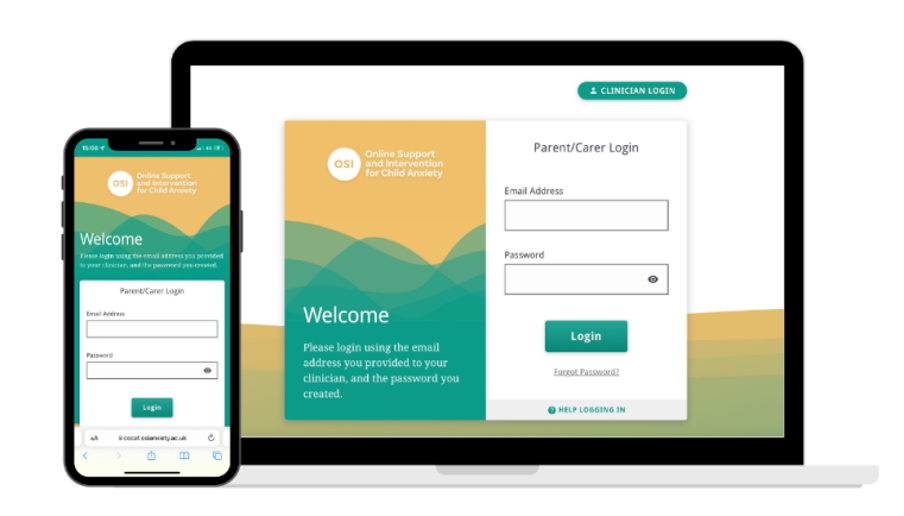
Online Support and Intervention for Child Anxiety (OSI)
Online Support and Intervention for Child Anxiety (OSI)
Professor Cathy Creswell from the Departments of Psychiatry and Experimental Psychology led the development of the Online Support and Intervention for Child Anxiety project with the support of the NIHR Applied Research Collaboration Oxford & Thames Valley and Oxford Health Biomedical Research Centre (BRC).
Their work is based on the latest evidence on how to help children aged 5-12 years old overcome problems with fears, worries and anxiety, and was developed in collaboration with parents, carers, children, NHS professionals, researchers, a technology company, and others with relevant personal experience.
‘We are delighted that NICE have recognised the potential of both treatments to improve outcomes for children and young people experiencing mental health problems.
This is an important next step in realising the benefits of these evidence-based treatments across the NHS and making a real difference to the lives of children, young people and their families.’
Online Social anxiety Cognitive therapy for Adolescents, also developed with the support of the NIHR Oxford Health BRC, is an evidence-based, secure, online 10-week treatment programme developed to help treat social anxiety in those aged 11 to 19 years old.
The next step to these digital mental health technologies being used country-wide is approval by NHS England's Digital Technology Assessment Criteria. The NICE guidelines will then be changed to include this new information, and the NHS will be given a recommendation about how often it should be used.
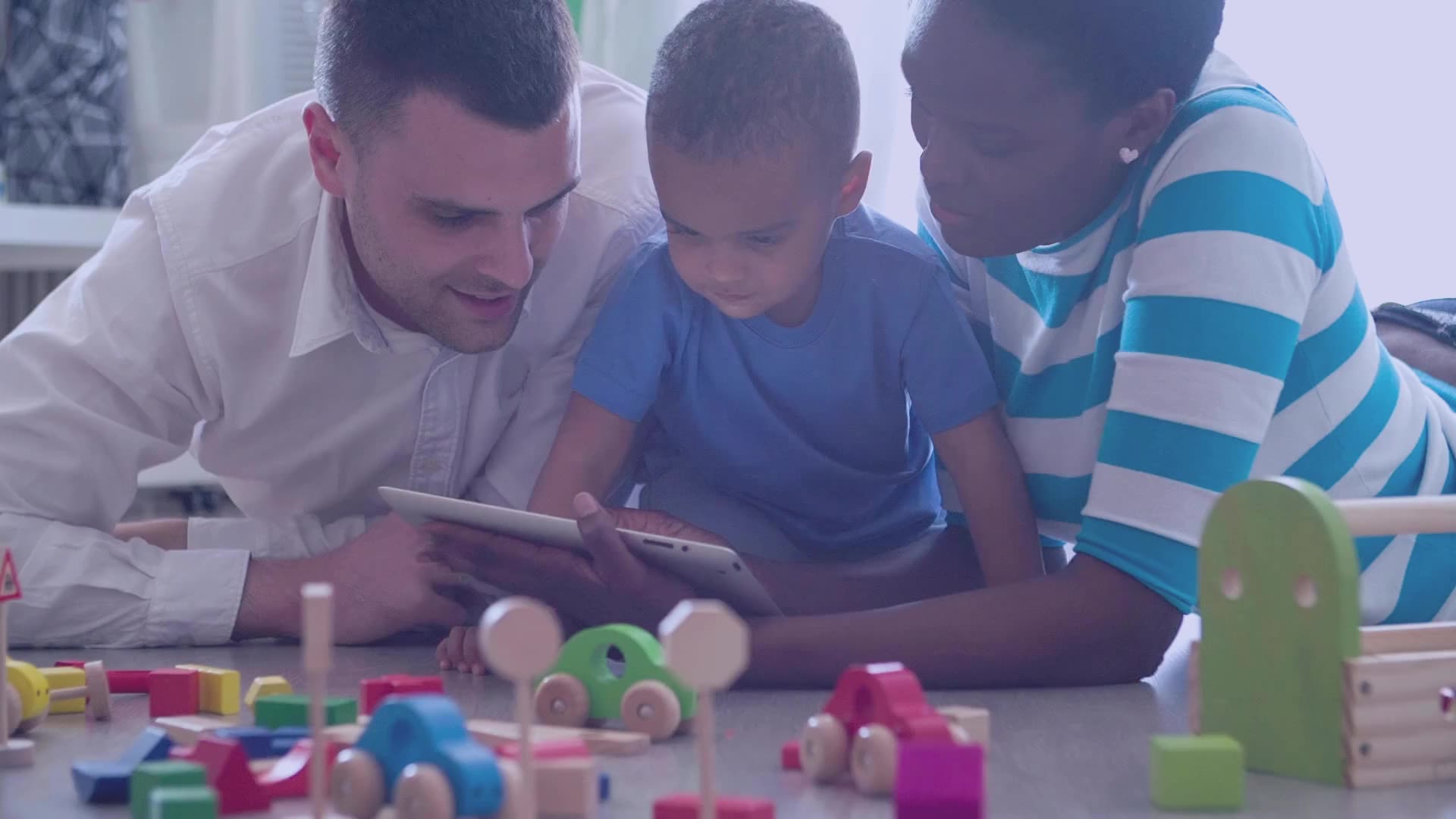
News and misinformation
Anxiety and news avoidance
Researchers from the Reuters Institute for the Study of Journalism, part of the Department of Politics and International Relations, examined how anticipatory anxiety leads to people avoiding the news.
Professor Rasmus Kleis Nielsen, Director of the Reuters Institute for the Study of Journalism, and Dr Benjamin Toff conducted a study exploring how the preconceptions of people in the UK shape the way they engage with the news.
Their findings found that people’s pre-existing perspectives about what news is (anxiety-inducing) and what it offers for them (little practical value) play an important role in shaping attitudes toward news and subsequent behaviour.
Many participants in the study saw the news as emotionally taxing, highlighting a source of uncertainty and lack of control, making it an obstacle to deeper political engagement in a complex and upsetting world.
‘I actively avoid things that trigger my anxiety and things that can have a negative impact on my day. I will try to avoid reading news about things like deaths and disasters.’
The Reuters Institute’s 2022 Digital News Report, authored by Senior Research Associate Nic Newman, reinforced these findings in their annual report based on data from six continents and 46 markets.
They found an average of 38% of those surveyed were often or actively avoiding the news, with around a third (36%), particularly those who are under 35, saying that the news brings down their mood.
Concerns about the news having a negative effect on their mood were higher amongst avoiders in the United Kingdom (55%) and United States (49%) than they were elsewhere.
Nic Newman and Professor Nielsen feature on the Future of Journalism podcast, discussing in more detail the main findings of the Digital News Report 2022 including how a depressing news agenda is leading people to turn away from the news.

